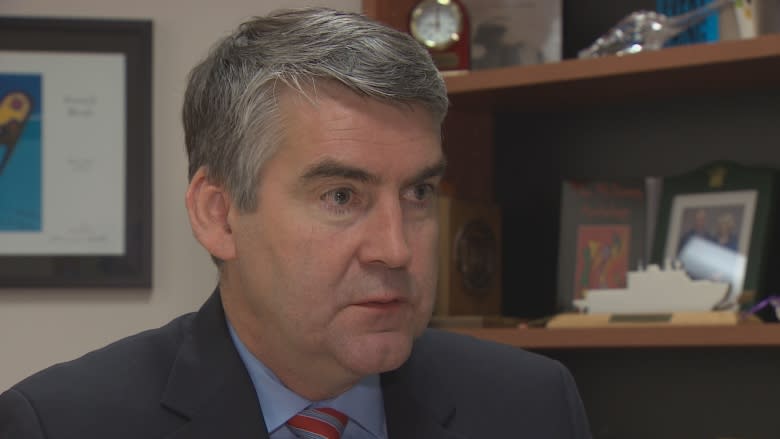'Strained' labour relations a hallmark of Liberals' first term
Let it never be said Stephen McNeil was afraid to stand up to unions.
Protesters circling Province House, chanting "Steee-vannn" and waving signs, were one of the hallmarks of the Liberal leader's first term as premier. More often than not, labour-related legislation was the source of that protest.
McNeil repeatedly stuck to a position that his government had a certain amount of money it could spend on contracts and it would not deviate from that "fiscal envelope," a position that would keep the Liberals from reaching a collective agreement with any of the province's three major unions.
How the public views that approach and the Liberals' motives could well determine the outcome of the upcoming election.
'A pretty common tactic'
But for his most recent scuffle with teachers, McNeil and the Liberals saw bumps in the polls whenever there was a union-related fracas.
Jason Foster, a professor who studies labour relations at Athabasca University in Alberta, said the combative approach from the Liberals during the last 3½ years is a trend for many governments as they try to negotiate contracts.
"It's a pretty common tactic for government — especially governments who are feeling some fiscal pressure — to target their public sector unions," he said.
The approach here is measured compared to some provinces and states, said Foster, where wages are being rolled back and workers are being laid off. In McNeil's own words, the approach in Nova Scotia was about "slowing down growth" of public sector contracts.
The Liberals enter the election campaign having imposed a contract on teachers and having yet to sign deals with the other two major public sector groups: health-care workers and civil servants. The Nova Scotia Government and General Employees Union represents the latter and a good chunk of the former.
Anti-union track record?
NSGEU president Jason MacLean described labour relations in the province as "strained."
MacLean said he sees the Liberals' track record of labour-related bills as anti-union and, in some cases, unconstitutional. It's why the NSGEU is putting on a push with its 30,800 members to try to help defeat the Grits, he said.
"They feel that they know everything and that they can dictate everything to Nova Scotians. However, the ones that they're dictating to are the ones that are serving Nova Scotians."
MacLean said he sees Liberal legislation that merged the district health authorities, designated workers as essential services and reserved the right to impose a wage package as designed so the government could avoid actual negotiations.
McNeil, not surprisingly, doesn't see it that way.
Part of the job
His focus in negotiations as premier was on "what was the amount that we could afford that was fair and, at the same time, leaving capacity for government to invest in infrastructure and programs," he said.
McNeil sits across the table from union leaders tasked with doing what's best for their members. But it's his job, he said, to think of the whole province. In many cases that's put him at odds with thousands of workers, something he said he does worry about.
"It's not always a good place to be where you're in confrontation. It's not where I like to be, but it's part of what I have to do. It's part of the job to say, 'This is all I can afford.'"
When the Liberals tabled their latest budget, McNeil made the case that many of the investments in the document were possible only because his government took the position it did when negotiating contracts.
Short-term versus long-term
Foster said the challenge for governments is that wages make up the largest line item in a budget.
But a confrontational approach can be as much of a challenge because it can lead to people feeling alienated, not working to their full potential, or leaving the public sector altogether, he said.
"And that's a long-term consequence that [governments] don't think about because they're thinking about short-term votes and they're thinking of short-term public opinion."




